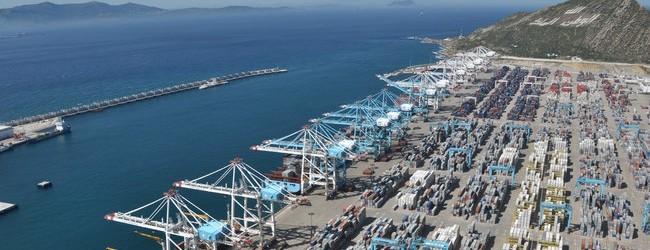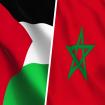
For several years, Morocco has launched many major infrastructure projects that have had an impact on the national and territorial economic fabric and have contributed to supporting the various sectoral and decentralised strategies. In this regard, Morocco is ranked 53rd for the quality of its infrastructure in the 2019 competitiveness ranking of the World Economic Forum.
These infrastructures essentially assess:
Roads: the road network stretches for a length of 57,334 km and plays a significant role in promoting the economic development of the country, facilitating the accessibility and strengthening the balanced development of territories. The network ensures 90% of people's journeys and 75% of freight transport. In addition, 1,093 km of expressways (dual carriage ways) are in operation; the goal is to reach 1,300 km.
Highways: The motorway network has developed to reach 1,800 km, thus contributing to connecting all cities with more than 400,000 inhabitants. It is expected to reach 3,000 km by 2030.
Ports: the port network includes 39 ports, 13 of which are dedicated to foreign trade. In addition, the port of Tanger Med serves as a strategic platform because of its exceptional capacity: 9 million containers, 7 million passengers, 700,000 TIR trucks ("International Road Transit") or 1 million vehicles for export.
Tanger Med has also contributed to the development of 6 industrial and logistics zones. Thanks to this port, Morocco ranks, for several years, among the world's top 20 countries in logistics connectivity in the UNCTAD's annual ranking. Similarly, according to the Financial Times, Tanger Med alongside its 750 companies form the first industrial free zone in Africa. These companies, which represent an annual export business volume of 5,500 million dollars, are active in different sectors such as the automotive sector, aeronautics, logistics, textile industry and trade.
Also, the port provides direct maritime connections with 186 ports and 77 countries. In 2018, it contributes more than 50% of Moroccan exports with a value of USD 139 million of exported products
Airports: The country has 18 airports, 16 of which are international, served by several international airlines connecting them to the world's main capital cities and global business centres.
Railway lines: The Moroccan rail network covers a total distance of 2.110 kilometres, with 120 stations that are continually renovated. In addition, Morocco is the first country to launch a High Speed Train in Africa (320km/h) , connecting the cities of Tangier and Casablanca (prime axis of business), this new high-speed line , as indicated in the master plan of the project, will be extended between Agadir and Oujda, through the cities of Marrakech and Fez by 2035 .



